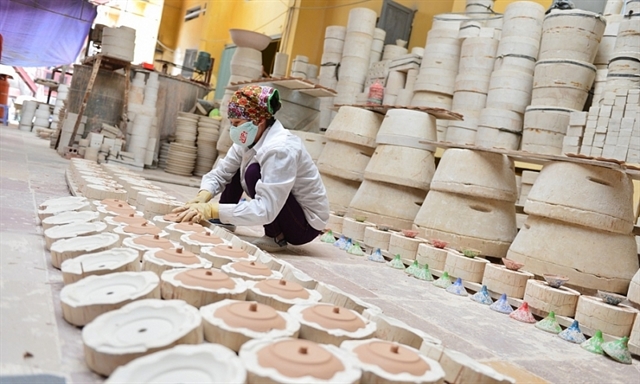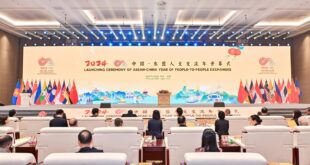
HÀ NỘI — Việt Nam has opportunities to build green and sustainable production and consumption in the wake of the country’s commitments to achieving net-zero carbon emissions by 2050.
At the 2021 United Nations Climate Change Conference (COP26), Prime Minister Phạm Minh Chính said that Việt Nam committed to reducing greenhouse gas emissions to achieve net-zero carbon emissions by 2050.
According to Nguyễn Thế Chinh, director of the Environmental Economic Policy Institute, the commitment will be an important turning point for the country’s restructuring to gain a low carbon and green economy, which will also help the country achieve rapid and sustainable development as per the Party’s policies.
In fact, Việt Nam-based factories of many large foreign corporations are gradually converting to cleaner energy sources for production.
According to NIKE Inc’s chief sustainability officer Noel Kinder, by 2030, NIKE’s commitment is to reduce greenhouse gas emissions by 65 per cent in its owned or operated spaces, and by 30 per cent across its extended supply chain.
However, Kinder said: “To drive real change, our climate goals can’t just be words on a page. They have to move us into action. They have to shift how we think, plan, operate, and adapt. Most of all, they have to hold us accountable.”
Footwear in Việt Nam could be produced by using clean energy, he suggested, adding the construction of a greener electricity system will also contribute to creating many quality jobs.
Manufacturers in Việt Nam are also applying greener criteria such as low-carbon materials, decarbonisation of supply chains and 100 per cent use of renewable energy in their production process.
The Ministry of Planning and Investment is currently drafting a national green growth action plan for the 2021-30 period, with a vision to 2050, to submit to the Government. The plan, which will be a premise for the net-zero carbon emission roadmap, provides orientations for building and implementing a circular economy model in industrial parks and craft villages.
The ministry expects the plan would open up opportunities for the development of green industries such as environmental consulting; environmental pollution control; waste management, recycling and reuse; and low-carbon goods and services.
Besides, the ministry said green growth in the industries will also contribute to upgrading and streamlining the value chain, which will help them strengthen resilience against supply chain disruptions.
However, the ministry noted that becoming a green production centre with net-zero emissions for a developing country like Việt Nam is challenging.
It explained carbon reduction and recycling technologies are available, but carbon reuse and removal technologies have remained restricted. Besides, existing carbon capture and storage technologies are energy and water-intensive while research and commercialisation of the technologies require financial subsidies to offset potential risks.
According to the ministry, the green transition and the clean energy development need to be carried out not only at a firm or a production stage, but throughout the supply chain. This is especially evident in some manufacturing industries such as steel, cement, construction, information and communications industries, the ministry said.
However, the ministry emphasised that green products is an irreversible new consumption trend and Việt Nam needs to follow suit.
Europe has so far initiated a number of new trade mechanisms such as the carbon border adjustment mechanism (CBAM), which taxes imported products with a high risk of carbon leakage such as steel, aluminium and fertilisers. This may become a new trend in the future and be included in negotiation programmes and trade agreements. It will be a disadvantage for countries, including Việt Nam, to export to the EU market if they fail to convert to meet the mechanism’s requirements in time.
The ministry also expects the energy transformation in the production process will contribute significantly to the formation of sustainable production and consumption in Việt Nam. — VnExpress News
- Reduce Hair Loss with PURA D’OR Gold Label Shampoo
- Castor Oil Has Made a “Huge” Difference With Hair and Brow Growth
- Excessive hair loss in men: Signs of illness that cannot be subjective
- Dịch Vụ SEO Website ở Los Angeles, CA: đưa trang web doanh nghiệp bạn lên top Google
- Nails Salon Sierra Madre
 VnExpress News The News Gateway of Vietnam
VnExpress News The News Gateway of Vietnam




